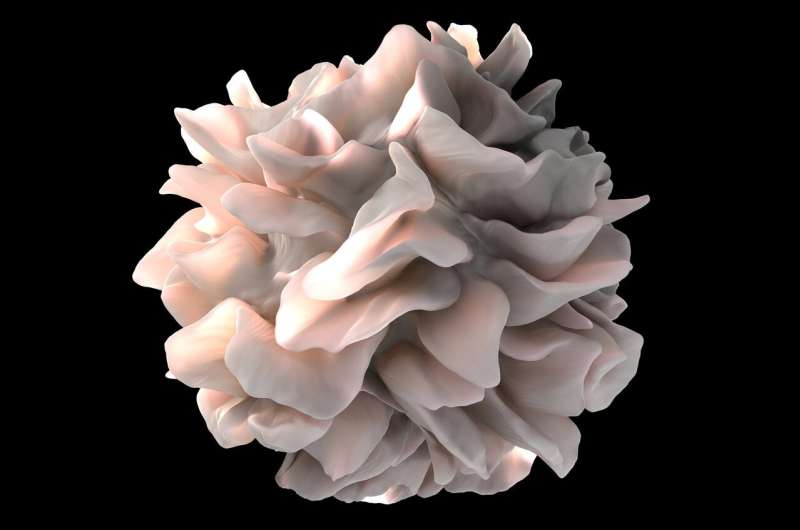New avenues for the optimisation of dendritic cell-based cancer immunotherapies

A recent study from the University of Helsinki reveals that inhibiting certain adhesion receptors on the surface of dendritic cells, the main antigen-presenting cells of the immune system, enhances antitumour responses.
Dendritic cells are the main antigen-presenting cells of the immune system and are essential for "kicking off" the immune response against infectious agents and tumors. Beta2-integrins are adhesion receptors found on the surface of these cells, which mediate the interactions between the cell and its environment.
"We have found that these integrin-mediated interactions dampen the functionality of dendritic cells and their migration. This happens by regulating the gene expression program of the cell. In particular, integrins regulate epigenetic changes such as the chemical modifications of histones, the proteins that DNA is wrapped around to make chromatin. This affects how tightly DNA is wound around the histones and how 'open' the chromatin is—which in turn determines whether a specific gene expression can occur," explains Susanna Fagerholm, from the University of Helsinki.
Importantly, the researchers found that when integrins are switched off, dendritic cells switch on a gene expression program that makes them better at mediating T cell activation and tumor rejection. Increased tumor rejection can also be induced artificially by manipulating these pathways in normal dendritic cells.
This study reveals that beta2-integrins function as negative regulators of dendritic cell programming. By inhibiting these receptors, dendritic cells' anti-tumor responses become more effective. "This works a bit like check-point inhibition, which targets T cells, but here the target is the dendritic cells. When we "release the breaks" of the dendritic cells, it makes them better at activating T cells. This opens up new possibilities for improving dendritic cell-based cancer immunotherapies already in use in the clinic," Fagerholm concludes.
The research was published in Cancer Immunology Research.
More information: Carla Guenther et al, β2-Integrin Adhesion Regulates Dendritic Cell Epigenetic and Transcriptional Landscapes to Restrict Dendritic Cell Maturation and Tumor Rejection, Cancer Immunology Research (2021). DOI: 10.1158/2326-6066.CIR-21-0094















